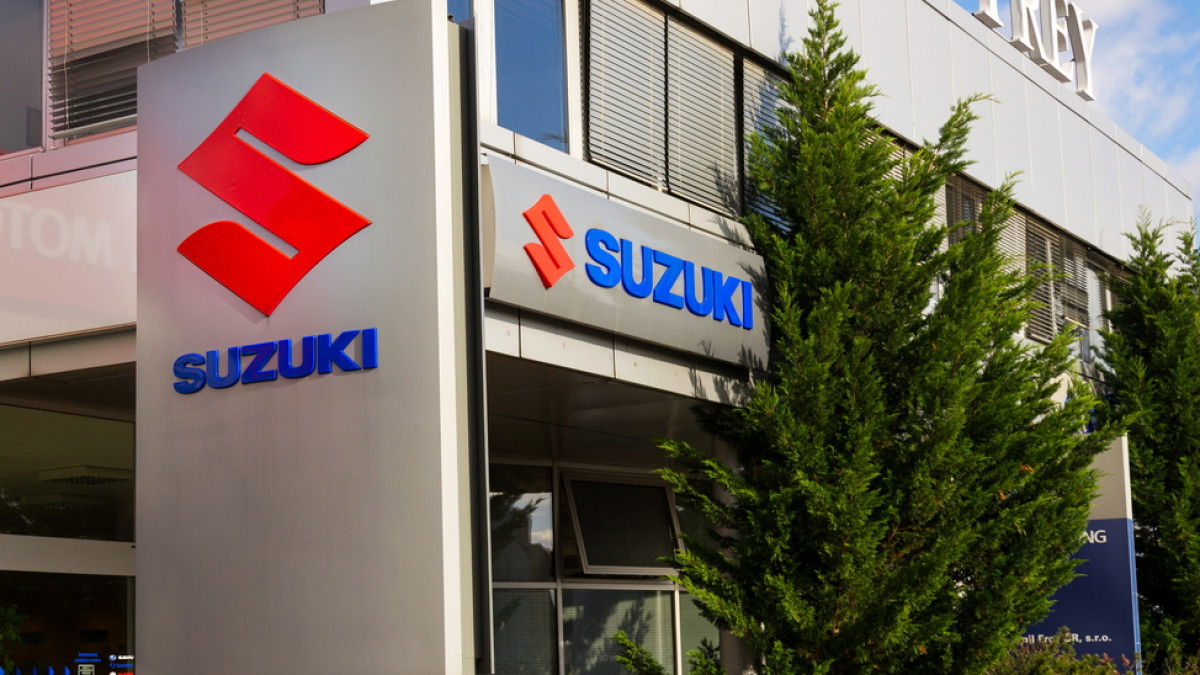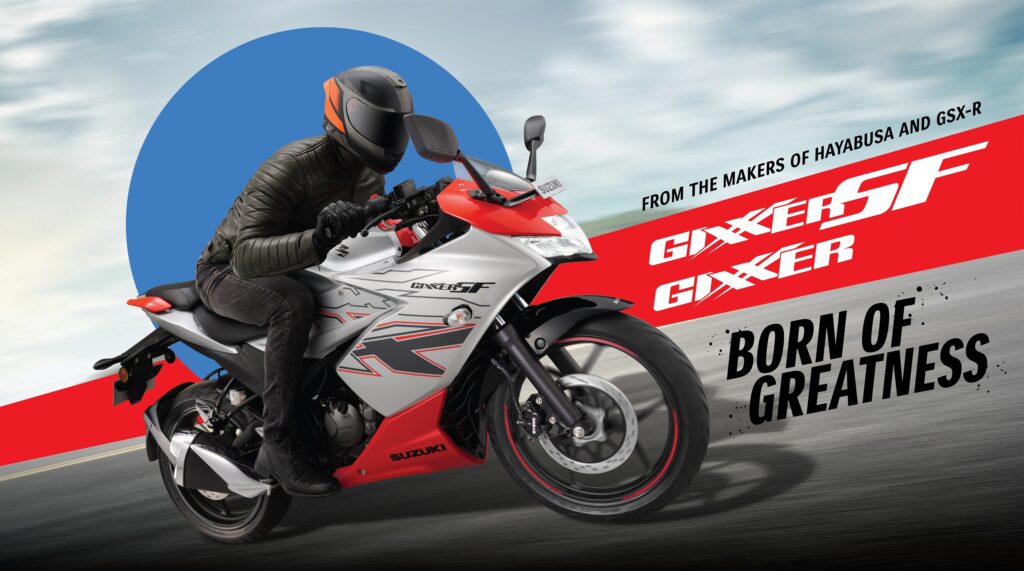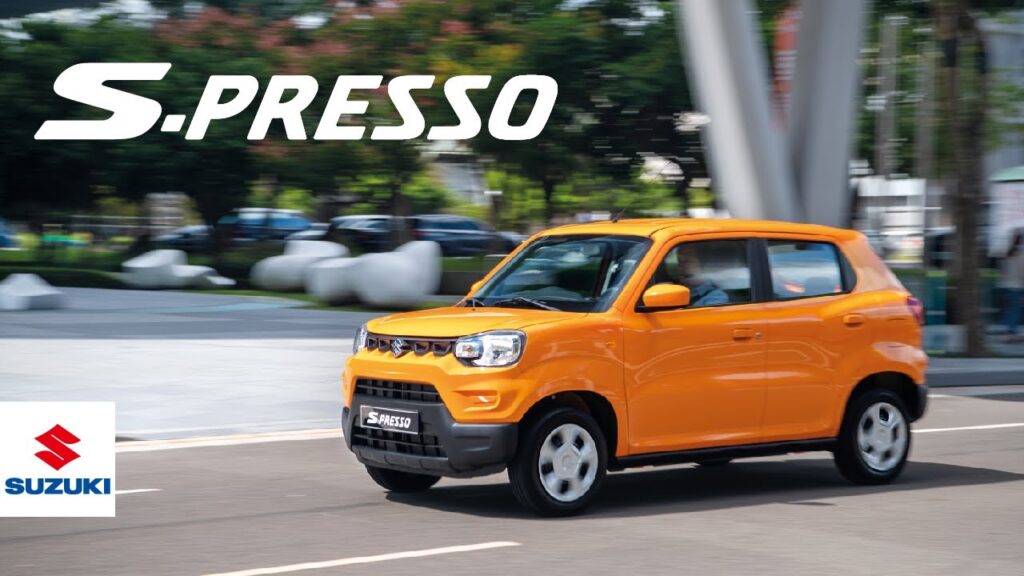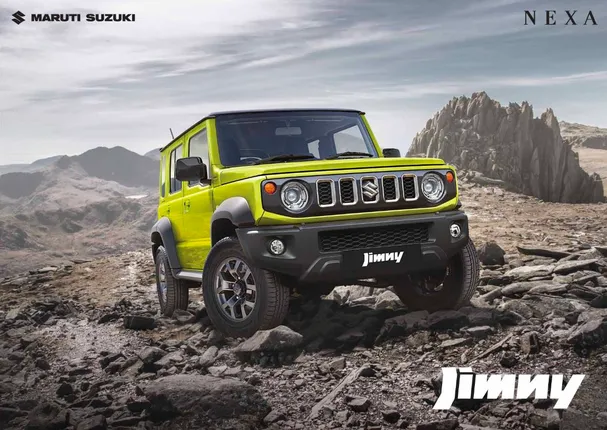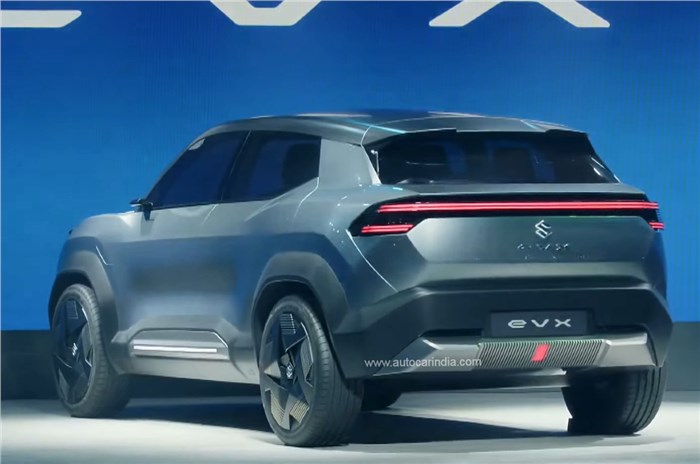Suzuki, a prominent name in the automotive industry, has been at the forefront of revolutionizing the way people travel and commute for over a century. With a rich heritage spanning more than 100 years, Suzuki has emerged as a global leader known for its innovative designs, reliable engineering, and commitment to providing affordable transportation solutions. In this article, we delve into the fascinating journey of Suzuki, from its humble beginnings to its current position as a trailblazer in the automotive market.
Suzuki’s story began in 1909 when Michio Suzuki established a loom manufacturing business called Suzuki Loom Works in Hamamatsu, Japan. Initially focused on producing weaving looms, the company quickly expanded its operations and ventured into various other manufacturing sectors. This spirit of diversification laid the foundation for Suzuki’s future endeavors in the automotive industry.
In 1937, recognizing the growing demand for small, efficient vehicles, Suzuki embarked on a new chapter by developing its first prototype automobile. This marked the company’s official entry into the automotive industry. However, due to the onset of World War II, Suzuki’s automobile production plans were temporarily put on hold as the company shifted its focus to military production.
After the war, Suzuki returned to manufacturing looms but soon faced a decline in demand. In response, the company decided to leverage its engineering expertise and enter the motorcycle market. In 1952, Suzuki introduced its first motorized bicycle, the Power Free, which featured a 36cc engine and became a commercial success. This breakthrough laid the groundwork for Suzuki’s future dominance in the motorcycle industry.
Buoyed by the success of its motorcycles, Suzuki recognized the potential in the four-wheeler market and began developing compact cars. In 1955, the company unveiled its first mass-produced car, the Suzulight, which boasted a two-stroke engine and an aerodynamic design. The Suzulight quickly gained popularity, showcasing Suzuki’s ability to combine fuel efficiency, affordability, and practicality in its vehicles.
Suzuki’s success in Japan propelled the company to expand its operations worldwide. In the 1960s and 1970s, Suzuki established strategic alliances with foreign manufacturers, enabling it to access new markets and benefit from technological collaborations. Notable partnerships include joint ventures with General Motors (1981-2008) and Volkswagen (2009-2015). These alliances further strengthened Suzuki’s global presence and helped facilitate the exchange of knowledge and resources.
Suzuki has consistently pushed the boundaries of innovation, introducing groundbreaking technologies in its vehicles. From the introduction of the first four-wheel-drive compact car (Suzuki Jimny) to the development of fuel-efficient engines and hybrid systems, Suzuki has continually focused on enhancing performance, safety, and environmental sustainability.
Suzuki’s journey from loom manufacturing to becoming a global automotive powerhouse showcases the company’s resilience, adaptability, and dedication to innovation. With a diverse product lineup comprising motorcycles, compact cars, and SUVs, Suzuki continues to make significant contributions to the automotive industry. As the world evolves, Suzuki remains committed to its core principles of providing reliable, efficient, and affordable vehicles that meet the changing needs of consumers worldwide.
Dynamic Product Lines of Suzuki
Suzuki boasts an extensive range of vehicles that cater to a wide array of consumer preferences and needs. From motorcycles to compact cars and SUVs, Suzuki’s product lines showcase the company’s commitment to providing innovative, reliable, and affordable transportation solutions. Let’s delve into the various product lines offered by Suzuki, highlighting their unique features and contributions to the automotive market.
Motorcycles
Suzuki’s motorcycle division is an integral part of its product portfolio and has been a major contributor to the company’s success. Known for their performance, reliability, and versatility, Suzuki motorcycles cater to different riding styles and purposes.
Sport Bikes: Suzuki’s sport bikes combine cutting-edge technology with thrilling performance. Models like the GSX-R, Gixxer SF series are designed for speed enthusiasts, offering exceptional acceleration, agile handling, and aerodynamic styling.
Street Bikes: Suzuki offers a range of street bikes suitable for everyday commuting and urban riding. These motorcycles, such as the SV650 and V-Strom series, provide a balance of comfort, efficiency, and maneuverability.
Adventure Bikes: Adventure bikes like the V-Strom 650 and V-Strom 1050 are designed for long-distance touring and off-road exploration. They feature rugged designs, advanced suspension systems, and ample storage capacity.
Cruisers: Suzuki’s cruiser motorcycles, like the Boulevard series, combine classic styling with modern technology. With relaxed riding positions and powerful engines, these bikes deliver a comfortable and enjoyable cruising experience.
-

Suzuki Gixxer SF
Compact Cars:
Suzuki is renowned for its lineup of compact cars, which offer fuel efficiency, practicality, and affordability. These vehicles are designed to meet the needs of urban commuters and small families, providing a balance between compact size and interior space.
Hatchbacks: Suzuki’s hatchback models, such as the Swift and Baleno, feature stylish designs, nimble handling, and efficient engines. They offer versatility, ample cargo space, and advanced safety features, making them popular choices among urban drivers.
Sedans: Suzuki’s sedan offerings, like the Ciaz and Dzire, provide comfortable interiors, spacious cabins, and modern features. These sedans prioritize fuel economy, making them ideal for long-distance commuting and family use.
-

Suzuki S-Presso
SUVs and Crossovers:
Recognizing the growing demand for sport utility vehicles (SUVs) and crossovers, Suzuki has expanded its product lines to include models that combine off-road capabilities with comfort and practicality.
Compact SUVs: The Suzuki Vitara and SX4 S-Cross are compact SUVs that offer a blend of style, versatility, and all-terrain performance. These models feature advanced safety systems, ample cargo space, and efficient engines, catering to the needs of adventure-seeking individuals and families.
Mini SUVs: Suzuki’s mini SUVs, such as the Jimny, have gained popularity for their compact size, rugged design, and off-road capabilities. These vehicles are favored by outdoor enthusiasts and urban dwellers seeking a versatile and maneuverable SUV.
-

Suzuki Jimny
Electric and Hybrid Vehicles
In line with the industry’s focus on sustainability and environmental consciousness, Suzuki has introduced electric and hybrid vehicles to its lineup.
Electric Vehicles (EVs): The Suzuki Ertiga, Solio, eVX are all-electric models that offer zero-emission transportation solutions. These vehicles combine eco-friendly technology with practicality, providing a range of features and an efficient electric drivetrain.
Hybrid Vehicles: Suzuki’s hybrid models, such as the Swift Hybrid and Ignis Hybrid, utilize a combination of a petrol engine and an electric motor to enhance fuel efficiency. These hybrids offer reduced emissions and increased fuel economy without compromising on performance.
-

Suzuki eVX
Suzuki’s diverse product lines encompass motorcycles, compact cars, SUVs, and eco-friendly vehicles. Each product line caters to different consumer preferences, ensuring there is a Suzuki vehicle to meet a wide range of needs. With a focus on innovation, reliability, and affordability, Suzuki continues to deliver vehicles that resonate with customers worldwide, solidifying its position as a leading automotive manufacturer.
Suzuki’s Foreign Alliances: Collaborative Endeavors in the Automotive Industry
As one of the world’s leading vehicle manufacturers, Suzuki has built strong relationships with a number of global partners and companies to expand their reach, enhance product offerings, and drive innovation. These collaborative endeavors have played a vital role in Suzuki’s growth and development, fostering innovation, and enabling the company to offer a diverse range of high-quality vehicles. Let’s explore Suzuki’s foreign alliances, highlighting key partnerships and their contributions to the brand’s success. Here is some key information on Suzuki’s most notable foreign alliances:
Toyota Motor Corporation – In 2016, Toyota and Suzuki announced a business collaboration that allowed both companies to share technologies, resources, and expertise across all fields of automotive development, production, marketing and sales. Under this agreement, Suzuki supplies products and components including engines, transmissions, parts and whole vehicles to Toyota, while receiving technical support from Toyota. This partnership has enabled Suzuki to develop advanced hybrid systems using Toyota technology and increase overall competitiveness through cost reductions and efficient allocation of production resources.
Volkswagen AG – In 2009, Volkswagen and Suzuki agreed to work jointly on developing electric models based on Suzuki’s ‘W’ platform (short wheelbase version). Volkswagen contributed a modular EV architecture called “Mass” which is highly adaptable to different markets and segments around the globe where the VW Group wants to position itself as a leader in e-mobility. Suzuki benefits by gaining access to cutting-edge battery, motor and control technology. Additionally, Volkswagen can benefit from Suzuki’s strength in small cars and Kei cars to deliver more sustainable solutions for customers in emerging countries, especially in India and China where Suzuki already has presence. Together they aim at realizing mutual success via win-win relationship.
Maruti Suzuki India Limited (MSIL)– Maruti Suzuki, the Indian subsidiary of the Suzuki Motor Corporation was established in 1981 and today is among the largest car makers in India owning over 50% domestic passenger car market share. MSIL leverages the technological prowess gained from Suzuki corporate and have locally engineered many key powertrain and chassis components since beginning. The company exports to several African countries since late 1980s. With the opening up of the Automobile Industry policy earlier this year allowing unrestricted imports to India, MSIL recently entered into a MoU with Suzuki Japan to export Wagon R Car to SAARC region from India at a globally competitive price point considering the huge economy of scale inherent to localisation. This alliance ensures long term growth prospects for both parties involved along with aiding government objectives to promote Make in India vision.
Nissan Motors – Nissan & Suzuki collaborates under the Renault-Nissan-Mitsubishi Alliance formed after Carlos Ghosn took charge post integration with Renault S.A in 1999 when Nissan acquired Mitsubishi motors. Post acquisition of shares to gain majority stake holding NMA (Nissan Manufacturing UK), changed name to Renault Nissan Manufacturing UK operationalizing a range of light commercial vehicles (LCVs) sold widely across Europe as well as truck cab assembly plants for the Japanese Market & Frontera utility pickup outside Spain.
LCVs produced at Ghandhidham factory were also shipped overseas after localization kitted assembly operations started in Kenya with complete knockdown/CKD operations likely next. Both the kei line and Carry minivan series still enjoy significant sales in Japan but Suzuki has expanded into larger MPV space as well. Nissan’s Tiida subcompact offering may see introduction alongside Ertiga in future. Suzuki also assembles HR-series mini excavators in India at Oragadam plant near Chennai port supporting higher volumes resulting lower costs for both buyers of these equipment and dealer operations.
General Motors Cooperation (GMC) – GM and Suzuki ended their equity stakes sale transaction to concentrate on core US home markets leaving the decision to partner further based on respective strategic interests moving forward. However, together, there is high likelihood of sharing platforms & engineering for fuel efficiency. The two have shared platforms and engineering methods to cope with tightening regulatory norms surrounding fuel efficiency emissions regulations across various regions such as EU driving emission standards commonly known as the Worldwide Harmonized Light Vehicle Test Procedure or WLTHP). Suzuki sources compact-class midsize sedans directly targeted towards American drivers which meet stringent California state emission limits under its ‘Beyond Pixo’ strategy and can be badged as Buick Regals sourced domestically from China.
For Suzuki, it gets modern, cutting edge, mass volume-producible gasoline and diesel engine architectures outperforming rivals in terms of power density, thermal efficiency and friction reduction technologies enabling optimized outputs without sacrificing driveability with better feel even in cold start conditions irrespective of whether engine oil warms during daily usage before commuting begins on cold winter mornings.
Suzuki’s foreign alliances have been pivotal in expanding its global footprint, sharing technological advancements, and accessing new markets. Collaborations with General Motors and Volkswagen have allowed Suzuki to tap into the expertise and resources of established automotive giants. These alliances have facilitated technology sharing, market expansion, and product collaborations, resulting in the development of high-quality vehicles for consumers worldwide.
Growth Strategies of Suzuki
Suzuki has implemented various growth strategies over the years to establish itself as a prominent player in the global automotive industry. These strategies encompass market expansion, product diversification, technological advancements, and strategic alliances. Let’s delve into the details of Suzuki’s growth strategies:
Market Expansion: Suzuki has pursued aggressive market expansion to establish a strong presence in key regions and tap into emerging markets. The company recognized the importance of diversifying its geographical footprint to reduce dependency on specific markets. Through strategic planning and investment, Suzuki expanded its operations beyond its home market of Japan, focusing on regions such as India, Southeast Asia, Europe, and the United States.
India: Suzuki’s partnership with Maruti Udyog India Limited has been instrumental in its success in the Indian market. The collaboration allowed Suzuki to leverage Maruti Suzuki’s extensive distribution network and market knowledge, leading to significant market share and dominance in India’s automotive industry.
Southeast Asia: Suzuki has targeted the Southeast Asian market, known for its high demand for small and fuel-efficient vehicles. By introducing compact cars and motorcycles tailored to the needs of this region, Suzuki has successfully captured a significant market share in countries like Thailand, Indonesia, and Vietnam.
Product Diversification: Suzuki has continuously expanded its product portfolio to cater to a wide range of consumer preferences and needs. The company’s product diversification strategy encompasses various vehicle segments, including motorcycles, compact cars, SUVs, and electric vehicles. By offering a diverse lineup, Suzuki ensures it can cater to different market segments and adapt to changing consumer demands.
Motorcycles: Suzuki has maintained a strong focus on motorcycles, developing a wide range of models catering to different riding styles and purposes. From sport bikes to cruisers and adventure bikes, Suzuki provides options for enthusiasts and casual riders alike.
Compact Cars: Suzuki is renowned for its lineup of fuel-efficient and compact cars, which have gained popularity in urban environments. By offering hatchbacks, sedans, and compact SUVs, Suzuki addresses the needs of urban commuters and small families seeking affordable and efficient transportation.
Electric and Hybrid Vehicles: With a growing emphasis on environmental sustainability, Suzuki has embraced electric and hybrid vehicle technologies. By introducing electric and hybrid models, such as the Ertiga and Swift Hybrid, Suzuki aims to provide eco-friendly mobility options while meeting changing consumer preferences.
Technological Advancements: Suzuki places great importance on technological advancements to enhance vehicle performance, safety, and fuel efficiency. The company invests in research and development (R&D) to continuously improve its products and incorporate innovative features.
Engine Efficiency: Suzuki has focused on developing efficient and lightweight engines, utilizing technologies like direct injection, turbocharging, and hybrid systems. These advancements improve fuel economy and reduce emissions while maintaining performance.
Safety Innovations: Suzuki prioritizes safety by incorporating advanced safety features and technologies into its vehicles. This includes systems like advanced driver-assistance systems (ADAS), collision mitigation, and adaptive cruise control, ensuring a safe driving experience for consumers.
Strategic Alliances: Suzuki has actively sought strategic alliances and partnerships to leverage the strengths and resources of other companies, gain access to new markets, and enhance technological capabilities.
General Motors Alliance: The alliance with General Motors allowed Suzuki to expand its global reach and benefit from GM’s advanced technologies and manufacturing expertise. This collaboration facilitated market access, technology sharing, and joint product development.
Toyota Partnership: The strategic partnership with Toyota aims to foster collaboration in areas such as electric vehicles and joint production efforts. This alliance enables both companies to leverage each other’s strengths and drive sustainable mobility solutions.
Focus on Emerging Markets: Suzuki has recognized the potential in emerging markets and has implemented growth strategies to capitalize on these opportunities. The company has tailored its products and marketing strategies to meet the specific needs and preferences of consumers in these markets. For example, in India, Suzuki has introduced affordable and fuel-efficient models that have resonated with the price-sensitive market. By targeting emerging markets with tailored offerings, Suzuki has successfully gained a strong foothold and achieved significant market share.
Continuous Improvement and Kaizen Philosophy: Suzuki follows the Kaizen philosophy, which emphasizes continuous improvement and innovation. The company encourages its employees to identify opportunities for improvement, implement efficiency-enhancing measures, and contribute to the overall growth and success of the organization. This commitment to continuous improvement helps Suzuki stay ahead of competitors, drive innovation, and deliver exceptional value to customers.
Suzuki’s growth strategies encompass market expansion, product diversification, technological advancements, and strategic alliances. By expanding into new markets, offering a diverse product lineup, embracing technological innovations, and forming strategic partnerships, Suzuki has positioned itself as a global automotive leader. The company’s relentless pursuit of growth, innovation, and adaptation to changing market dynamics has been instrumental in its success and enduring presence in the automotive industry.
Also Read: Honda Rise to the Top: A Story of Persistence and Ingenuity
To read more content like this, subscribe to our newsletter
